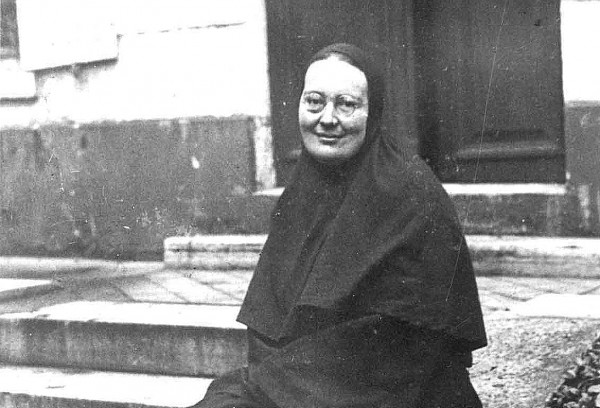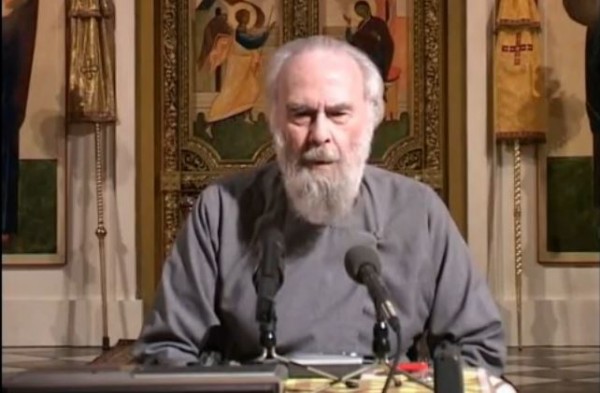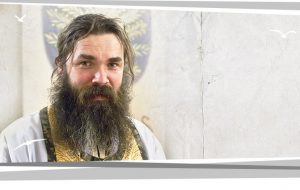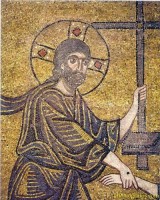If I understand properly … is it worth living? because the notion of the quality of life varies so much according to civilisations and also to circumstances that it is difficult to describe such quality that would meet all the needs. And therefore I will take a certain number of examples and try to convey what I mean by the quality of life and the sense one may have or not that life is worth living.
My first experience, a very drastic one, on the subject was gained soon after the war when people who had been in German concentration camps were brought back to France. They belonged to a variety of nationalities but they had in common this frightening and at times destructive experience. I looked after them for a year and a half and I had a chance to speak to them about what life had been. What I found there was that the reason why that had survived was a passionate desire to live. And this is a very important thing, because when we think in our circumstances in the prosperous world in which we live of the quality of live, we think of improving what we already have, having more, be happier. Here their condition was reduced to the absolute minimum. It was the basic things that mattered: to live, to survive. And because everything was done for their destruction, surviving acquired an importance that it has not got for us, simply because we survive quite easily, quite naturally and are supported in our desire to survive or forced into survival even when we have no desire to live longer than nature seems to have appointed.
So that this is the first thing: the quality of life, the sense of the quality of life, the reason why I want to live depends very much on whether life as such is challenged in a radical manner. Concentration camp challenged it. So that this is a very important and basic thing because apart from this major situation in which life was challenged in this monstrous manner, life could be challenged in minor ways, in ways that seem to us minor because we don’t experience them.
I am thinking for instance of homelessness and of hunger. When you speak in an audience like this or in most Western countries of hunger, the young as the old understand the word ‘hunger’ as good appetite. We all say: “O, I am ravenously hungry”. It means simply that I am ready for a good meal. Hunger has nothing to do with good appetite. And I know it from my own experience. When I was a medical student there was no food I could turn to because apart from studying I had to earn my living to pay my fees and survive; and I came at a certain moment to a condition that did not allow me to walk more than fifty paces on the footpath without sitting down because I could not walk longer than this. That I knew was hunger, and even that is nothing compared to what we read about or we can see on television about the hungry in the Sudan, in Ethiopia, in Bangladesh and so many other parts of the world. And again the challenge here was survival: one must last, one must last with all one’s energy, one’s courage, it is not luxury one wants, it is not unnecessary things of life one wants. One wants life as such, and to survive one is prepared to do all that it acceptable in the limits of morality and right.
And I remember how this period of hunger and the preceding period of eighteen years of total homelessness taught me a certain number of things. It taught me that there are values in life which are extremely precious, although to the people who are in better conditions they don’t even exist. I will give you another example. During the German occupation I was in Resistance and so I could not find work for myself. So I lived by giving lessons, by doing one thing or another. And I remember one day I came to see a contemporary of mine (I was then twenty nine-thirty years of age) without having eaten for two days. On his kitchen-table or rather on the table he had in his room I saw a cucumber, o, about that length of a cucumber. And instead of seeing his face or his room, I saw nothing but a cucumber glowing with glory. It was food. You may find it ridiculous. You may find me ridiculous, but I will tell you that my friend looked at me, looked at the cucumber and said: “You have not eaten?” I said: “No”. “Let us share it”. And then this young man who was my age, who was as hungry as I, more likely that not, broke this cucumber in two. And I have never eaten any food with a greater sense of awe and of reverence than I have eaten this piece of cucumber. This piece of cucumber for me stands out as the value of life. It was life given back to me. It was an absolute value.
I am giving you these examples because in our circumstances we set the quality of life very high. In the circumstances of my youth and the war years and afterwards, the quality of life depended on minute things but were so precious and so significant because this small piece of cucumber was not only food, it was the generous heart of a hungry young man sharing the little he had. Or if you prefer in the terms of one of our young Russian theologians, it was love divine made edible and conveyed to me by the brotherly love of another person. So the quality of life must be thought out not only in our terms but in vaster terms and in much deeper terms then this.
Now, there is another element in the quality of life which I believe is important: it is the purpose. What I have said before about both myself very quickly or about people coming form concentration camps was clear: the purpose at this moment was survival, and the quality of life was enhanced or diminished by everything that made survival possible or impossible, that impaired survival or enhanced it. And these things could be very small things. The act of being able to hide at the moment when you are persuade by the Gestapo, the moment you could be given a little food, the moment something could be done which anyway of little importance and yet at the same time was so important for you. I’ll give you another example again.
During the war I was a surgeon in the army and I was in a front hospital. A German was brought to us who had been wounded in the hand. His hand was suppurating and the index of his right hand was really good enough to be cut off. And this is what my boss suggested by a gesture. This man looked round and said in German: “I am a watchmaker”. You know what it means for a watchmaker to loose his index? He was finished as a professional man, he could not feed not only himself but also his family. And I suggested that I would work and save his finger. I worked three weeks against the good understanding of my boss who said: “You are mad. We are fighting a war and you will spend weeks trying to save this finger”. But I still feel that I was right because up to now perhaps in a small town or a village of Germany there is a man who has been able to go back home, feed his family, survive and think of a fool of a young surgeon who gave his time to make that possible. The quality of life was then nothing but his finger, and for me the purpose of my doing it was to save not only a finger, it was not a surgical operation, it was a human operation that went far beyond this finger and this man. It reached his family, it created a new situation, a new relationship between a prisoner and the captor. Within the war it was an oasis of humanity and of love.

St. Maria Skobtsova
Then there is meaning because that is not exactly the same as purpose. Meaning means that you put that what happens to you whether it is living or dying has a significance. And again I will illustrate what I have got to say by a couple of examples, which will convey better then anything I can say. The first example is that of a Russian nun called mother Maria who was arrested by the Germans for saving Jews and giving them shelter in her home. She was put into concentration camp, lived there for a couple of years and two things stand out: the one is that she shared half of her rations with those who were weak, frail and might have died. That was meaning, it was not purpose because purpose would have meant her own survival. Meaning mean: it does not matter whether I live, what matters is that this other woman lives. And then she ended her life in the same way. There was a group of women who had been singled out in order to be sent to the gas chamber. One of these women, a girl of 19 was wailing, crying in terror, and Mother Maria came up to her and said to her: “Don’t be afraid: the last word is not death, the last word is life”. And the girl said: “Do you believe that? Can you prove it to me?” And Mother Maria said: “Yes, I can prove it to you. I’ll come with you into the gas chamber”. And one to many in the group she went into the gas chamber and died there to make the death of this girl an event full of hope and not of despair.
Speaking in the same category of things I think of other people. An old friend of mine about 25 years older then I, was also taken into concentration camp for the same reason by the Germans. He came back after four years. I met him in a street, I said to him: “What have you brought back from camp?” “Agony of mind”, he said. “Have you lost you faith?” “ No, — he said, — but as long as I was in camp subjected to all the violence, the cruelty and impending death all the time, I could at every moment turn to God and say: Father, forgive, they don’t know what they are doing. Now I am free and I am in agony of mind for the people who tormented us in such wild manner because I don’t know whether they have changed, whether they have repented, regretted. And when I pray for them doesn’t God answer: It is easy for you to pray now, you are no longer suffering. What evidence can you give me of the sincerity and the truth of your words?” This is another example when a man found meaning in suffering because suffering gave him the power to forgive and he found also purpose of living in those conditions.
And again another example: I met near Riga in Latvia a few years ago a man of my generation. He had been in concentration camp and in prison for 25 years. He sat opposite to me with eyes luminous with gratitude and wonder saying to me: “Do you realise how wonderfully good God has been to me? The Soviet authorities did not allow a priest either into prison or into concentration camp and He chose me, a young inexperienced priest, and put me for five years into prison and for 21 years into concentration camp for me to look after those people who needed me more than the people outside”. For him his experience of 26 years in concentration camp and prison was an act of gratitude: God had been merciful, good to him, He had given him purpose and this purpose had total meaning for him.
So when we turn now again to this question of the quality of life we must reflect very earnestly about it: what is the quality of life? Is it luxury, is it opulence, it is the ability to have all one can dream of? or is it something infinitely more basic — a sense of the value of life as life in its nakedness and the sense that death is nothing compared to this. In ancient times people used to say: “remember death”. Nowadays when you say that kind of thing to a modern person, the answer is: do you mean to say that the remembrance of death must cast a cloud of darkness on every joy at every moment of my life? No, it is not what people meant. What people meant was that unless you can face death, stand face-to-face with death in a fearless way you cannot live fully. It is only if we can challenge death without fear that we can challenge life without terrors. A French writer Rablais writes in one of his letters: I am prepared to stand for my convictions up to hanging exclusively. If you are prepared to stand for your convictions, for your faith, not religious faith but just your faith in life, your faith in people, your faith in humanity up to death exclusively, you have no convictions. So we must face it.
And is death such a terror when it is faced? I have got still five minutes so I can give you one more example. An example which I find difficult to give but I think you have a right to examples that are a pain to the speaker. My mother died of cancer after a long illness at home. She was operated, the operation was unsuccessful. I was told but the surgeon of it and he added: “But of course you will not tell your mother”. And I said: “Indeed I will”. “In that case, — said the surgeon, — I am no longer her doctor or her surgeon because she will collapse in despair”. I went to see my mother and I told her. And so she looked at me and said: “So, I shall die”. I said: “Yes”. And then we entered into a period of long silence. Long not because it was so many minutes, — because it was so deep and it touched the very root of our souls. And we emerged out of it with a new experience.
There was one thing which we discovered: that now there was no secrecy between us, there wasn’t between us what one finds so often between the dying and their surroundings, between their family, or their doctors, or their nurses, or their friends: a lie, a lie sustained by both parties, the dying person knowing that death is upon her or him and smiling and doing as though there was nothing but life ahead, and the surrounding sustaining this lie. There was no lie between us. And because there was no lie there was the possibility of facing every minute of life with all the intensity it possessed, because it could be the last; and because it could be the last it was to be perfect. Every word could be the last word spoken, it was to embody, to incarnate all the love, all the relationship, all there was between us, every gesture, however ordinary, could be the expression either of indifference, carelessness, or of the love and concern, and oneness that was between us. We discovered that to prepare a tray with a cup of tea so that it should be beautiful could be the expression of love and the summing up of forty and more years of leaving together. We discovered that it nothing which is too small to be the expression of love, the expression of an absolute relationship.
And I think this is something that belongs also to the quality of life. If we cannot face death with openness, with daring, our own but also someone else’s death, together, not separately, separately it is impossible to face death, but together, then life will never have the absolute quality that makes people in concentration camp, in prison, in terminal illness, in mortal danger in the war or in any other circumstances stand up to it and say: “I live and I shall conquer”.




















